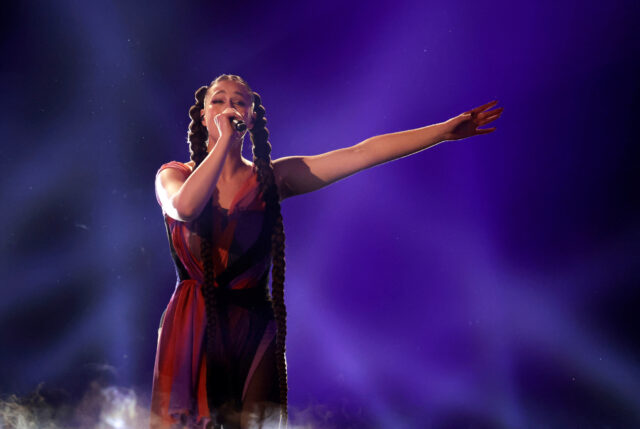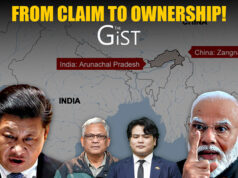The Jewish community in the Swedish community of Malmo is feeling anxious as the Eurovision song contest gets underway. The competition is from May 7-11. The normally quiet city is under tight security lockdown as planned protests against the Israeli contender Eden Golan who is expected to take to the stage on May 9.
Golan has said her song is a message of “unity by music” but many fear it will not be enough. Already her song entitled “October Rain” has been changed to “Hurricane” to avoid inflaming already angry sentiments. The Jewish community which number around 1,200 in Malmo admit they are worried about becoming targets.
“There’s a certain feeling of apprehension, of tension. I can’t say that I’m not worried,” Felix Krausz Sjögren, a guide at the synagogue in Malmo, told Reuters.
“With Israel being in the Eurovision, the emotions will be even more heightened, and maybe the synagogue will be a target of protests. It’s not unthinkable.”
Israel’s National Security Council on Thursday issued an advisory warning against travel to Malmo, citing “a well-founded concern that terrorist elements will exploit the protests and the anti-Israel mood to carry out attacks against Israelis attending Eurovision.”
The Israeli military, in an unusual move, said its home front command mobile phone app – which typically alerts Israelis to take shelter from incoming rocket fire – will also provide “real-time notifications” with any emergency instructions for Israelis in Malmo throughout the contest.
It isn’t just Israel nor is just politics surrounding music restricted to the Eurovision contest. Russia-born singer Manizha Sangin, who is of Tajik origin, was the last Russian candidate to represent her country in the competition in 2021 before Russia was banned from competing in 2022. Sanghin says she is dealing with much online hate back home due to the Moscow terror attack where four Tajiks have been blamed and arrested. In an interview to yahoo she draws a clear distinction between herself and Israel when it comes to the ban.
Regarding Israel, she says in the interview that “it’s not fair to ban music” but she understands why it happened. In her case, she believes, it is different.
“For example, If it was me, representing Russia in 2022 and Eurovision ban me, but my song, my views are different (than the government) and I’m still banned, it’s not fair.”
(With inputs from Reuters & other agencies)
Traveller, bibliophile and wordsmith with a yen for international relations. A journalist and budding author of short fiction, life is a daily struggle to uncover the latest breaking story while attempting to be Hemingway in the self-same time. Focussed especially on Europe and West Asia, discussing Brexit, the Iran crisis and all matters related is a passion that endures to this day. Believes firmly that life without the written word is a life best not lived. That’s me, Ashwin Ahmad.





